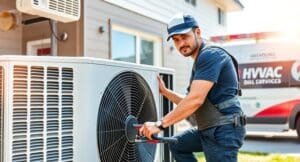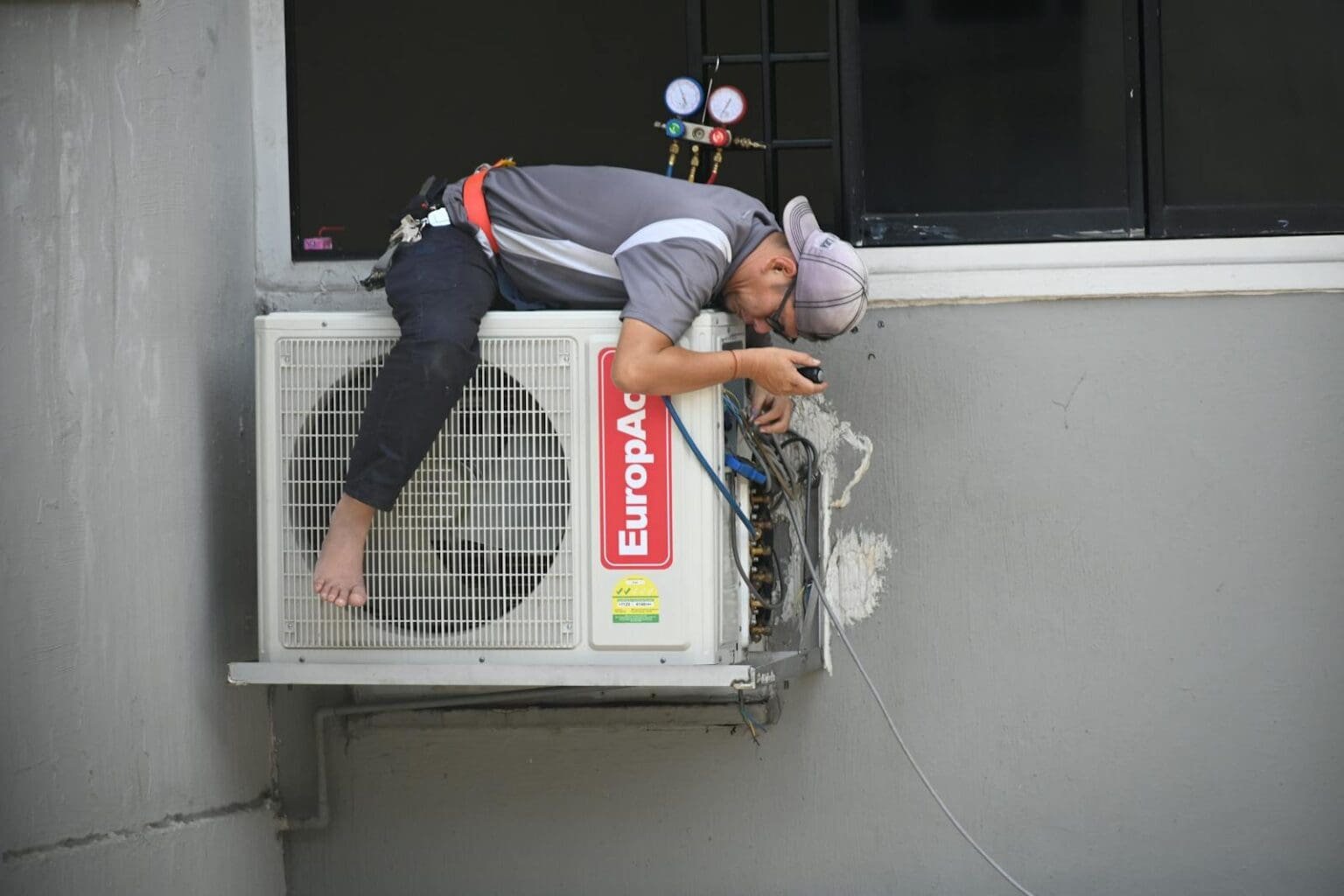The HVAC business is among the most competitive service markets today, but it is also among the most rewarding. You might start your heating and cooling company today and plan to grow it to great heights, or you might be thinking of growing your already-established company on a large scale, but to achieve your long-term success, you should not rely on your technical skills only. You should be able to have a plan that integrates effective business management, sound marketing, and exceptional customer care.
In this paper, we will dissect some effective HVAC business strategies to ensure that the business remains ahead of its competitors, profitable, and able to gain customer trust.
Establish a Powerful Brand Image.
Not a logo, but a brand name, as it is the reputation that your customers associate with your brand name, which is linked to reliability, quality, and trust.
To build a powerful identity:
- Select a business name that is professional in nature to depict competence and credibility.
- Design a uniform visual image (logo, web design, uniform, and car branding).
- State your unique selling point (USP): What is better about your HVAC service: faster reaction time, environmentally friendly equipment, or more developed diagnostic devices?
An established brand that is familiar and recognizable will help your business stand out and create credibility, the first step towards long-term customer loyalty.
Emphasize Excellent Customer Service.

A winning HVAC company has customer experience at its core. Although technology and price are important, most clients will remember how you treat them.
To enhance customer satisfaction:
- Technicians, in addition to their technical work, should also be trained in communication and courtesy.
- Give fair rates and open quotes.
- Make follow-up calls or emails after each service.
- Keep repeat customers through loyalty programs or annual maintenance programs.
A single satisfied customer can lead to dozens of referrals, and the long-term success of an HVAC business is established through regular word-of-mouth promotion.
Invest in Digital Marketing
Traditional marketing methods may not be as effective in 2025 for HVAC businesses. They need a robust online presence to get leads and transform them into loyal customers.
Digital strategies are based on:
- Local SEO Optimization: Incorporate terms such as ‘HVAC repair near me’ or ‘air conditioning services in [city name]’ to increase visibility in local searches.
- Google Business Profile: It is essential to regularly update it with accurate contact information, service hours, and positive reviews.
- Content Marketing: Blog, Videos, and how-to advice on maintenance, tips on what to do in the season, and tips on how to save energy.
- Display Ads (PPC): Display Google Ads or Facebook Ads to target homeowners with an urgent need for HVAC services.
By combining these strategies effectively, you can become a local leader and generate high-quality leads throughout the year.
Focus on Technician Training and Certification.

The most important asset of your team is your team. Retaining technicians in training and certification not only enhances the quality of service but also develops customer confidence.
Measures to empower your employees:
- Conduct continuous technical training on the new HVAC technologies and on smart home integrations.
- Promote such certifications as NATE (North American Technician Excellence) or EPA Section 608.
- Implement in-house development schemes that recognize progress in skills and professionalism.
Customers trust your brand when they see certified, well-trained technicians, because they believe in your trustworthiness, and through that trust, they are more likely to give repeat business.
Adopt Schedule and Preventive Maintenance Schedules.
Service agreements and maintenance plans are among the most effective methods of ensuring steady revenue.
Offer customers the option to choose between annual and semi-annual maintenance for their HVAC services. This helps keep their systems running, and you receive a predictable annual income.
Benefits include:
- Stable off-season revenue.
- Stronger client retention.
- Upselling options (filter replacement, duct cleaning, upgrade of the system).
These programs transform one-time customers into long-term customers, who are the basis of a stable HVAC business.
Adopt Intelligent Technology and Energy Saving.
The current HVAC customers are becoming increasingly aware of energy consumption and the benefits of smart homes. Be innovative and provide smart and environmentally friendly solutions, including:
- Wi-Fi-enabled smart thermostats and systems.
- High SEER HVAC units that have been energy efficient.
- Ventilation and air cleaning technologies.
Educate your customers about the benefits of conserving energy, and you will not only save money on your bills but also improve air quality and reduce costs in the long run. This puts your business in the progressive and green light.
Automate Data and Software to Optimize Operations.
To operate an HVAC company effectively, it needs to be well-organized. Automatically schedule, invoice, and communicate with customers using HVAC management software.
Search for such systems that comprise:
- On-the-fly tracking of technicians.
- Computerized appointment reminders.
- Online payment, invoicing.
- CRM (Customer Relationship Management) lead and sales tracking tools.
With data and automation, you can eradicate human mistakes, save time, and improve productivity —all of which are essential ingredients for sustainable success.
Create Local Strategic Alliances.
Collaborate with local real estate agents, property managers, and builders. Such relationships are capable of providing year-round contracts for installation and maintenance.
Attend community events, sponsor local events, and network with the local businesses. Your reputation in the community can help make you more visible and build long-term credibility.
Track Performance and Adapt
An effective HVAC company is one that continually adapts. Audit your financials and marketing information, and customer feedback on a regular basis. Determine what is effective and where it needs improvement.
Measure using tools such as Google Analytics, call tracking, and CRM reports:
- Lead conversion rates
- Customer retention rates
- Service-by-service profit margins.
Being flexible means that you will always be prepared to meet the changes in the market, new technologies, and shifting customer demands.
Conclusion
It cannot be achieved by simply having great equipment or being a technical genius; it requires a smart strategy, perseverance, and putting the customer first to build a successful organization over a long period within the HVAC industry.
In the HVAC business, branding, marketing, training, technology, and customer experience will help your business stand out, grow, and remain profitable over the next few years.
When you combine professionalism with pure care, you are not merely developing an HVAC company or a brand to be trusted, but rather a trusted brand that customers will rely on with each passing season.





